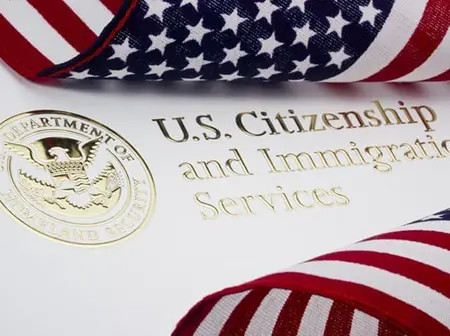In a significant shift in immigration policy, the Trump administration has reinstated a long-abandoned practice of conducting “neighborhood checks” for certain immigrants applying for U.S. citizenship.
This marks the first time in more than three decades—since the George H.W. Bush administration—that U.S. immigration authorities will systematically interview applicants’ neighbors, coworkers, and other community members as part of the naturalization vetting process.
The move is part of a broader effort by the administration to increase scrutiny over the naturalization process, which President Trump and top officials have argued has been too lenient for decades. A senior Department of Homeland Security (DHS) official confirmed that the policy aims to “enhance background investigations and ensure applicants meet the good moral character requirements” for citizenship.
The administration’s revitalization of personal investigations—commonly referred to as “neighborhood checks”—will include a new layer of documentation required from naturalization applicants. According to the recently released USCIS policy memorandum, applicants may now be asked to submit testimonial letters from individuals in their communities who can speak to their character, conduct, and overall eligibility for U.S. citizenship.
These letters may come from neighbors, employers, co-workers, or business associates—anyone who knows the applicant personally and can provide what the agency calls “substantiated information” related to the naturalization requirements. These include assessments of the applicant’s moral character, residency and physical presence, adherence to the Constitution, and willingness to serve the United States if required.
This requirement signals a more proactive role for applicants in substantiating their qualifications beyond traditional background checks or the USCIS-conducted interview. By formally requesting such letters, the agency is reintroducing a kind of community vetting once commonplace in the mid-20th century, before the practice was largely abandoned in the 1990s.
USCIS Director Joseph Edlow described the move as essential to meeting “congressional intent,” emphasizing that it strengthens the investigative process by incorporating firsthand accounts of the applicant’s behavior and integration into American society.
Critics argue that the policy could create confusion and anxiety among applicants, especially those who may struggle to find individuals willing to submit formal letters to a federal agency or who fear retaliation. Some legal advocates also worry that the policy may introduce subjectivity and bias into the process, depending on how USCIS officers interpret the letters.
Despite the controversy, USCIS maintains that these testimonial letters are not meant to be a barrier, but a tool to ensure a fuller, more accurate picture of each applicant. Guidance on acceptable formats and content for testimonial letters is expected to be issued to applicants and attorneys as the policy is implemented in the coming months.

Leave a Reply